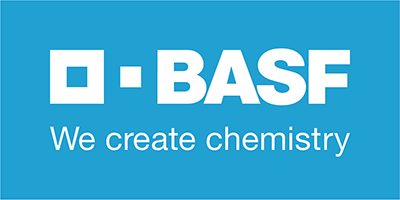- Responsible Sourcing Report extends former Palm Progress Report
- Report describes journey to sustainable renewables for BASF’s Care Chemicals division
- Protecting natural resources and empowering people along the value chain
BASF today published its first Responsible Sourcing Report (RSR) for its Care Chemicals division. The report is a refinement of the existing Palm Progress Report, which has been published annually since 2016. The new Responsible Sourcing Report outlines the company’s developments and achievements and extends the focus beyond palm (kernel) to coconut oil, castor oil as well as bio-based active-ingredients.
In 2022, BASF purchased 1.2 million metric tons of renewable raw materials. Shifting from fossil to bio-based starting materials can achieve positive effects like reducing greenhouse gas emissions. However, if not sourced responsibly, there is the risk of a negative impact to biodiversity, land use and working conditions. As part of BASF’s commitment to enhance sustainability along the entire value chain, the company is working with trusted partners to improve sustainability not only in the businesses oil palm supply chain but also in other crops where the company has expanded its certified-sustainable offerings.
The Responsible Sourcing Report was published during the Sustainable Beauty Days 2023, a series of virtual interactive broadcasts recordings available online (Sustainable Beauty Days 2023 (basf.com)). Here customers and the interested public can find out more about selected sustainability topics and gain insights into the company’s commitment to environmentally and socially responsible action.
Protecting natural resources and empowering people along the value chain
BASF has been on a sustainable sourcing journey for almost 20 years, offering certified-sustainably sourced palm (kernel) oil and more recently other raw materials like coconut oil and castor oil from respective sustainable sourcing certification schemes.
BASF works closely with stakeholders along the value chain to support and promote diverse and equitable work, including women and smallholder farmers in their efforts. One example is the lately announced partnership with Kaleka to support Indonesian smallholders in sustainable palm cultivation.
The certified-sustainable oils and active ingredients covered in the report are just one example of how BASF’s Care Chemicals division is addressing future challenges. Sustainability, digitalization, innovation and new approaches to working together are the key cornerstones to Care 360°– Solutions for Sustainable Life.
The full RSR and further information on BASF’s commitment to sustainability can be found here.
About the Care Chemicals division at BASF
BASF’s Care Chemicals division offers a broad range of ingredients for personal care, home care, industrial & institutional cleaning, and technical applications. We are a leading global supplier for the cosmetics industry as well as the detergents and cleaners industry, and support our customers with innovative and sustainable products, solutions and concepts. The division’s high-performance product portfolio includes surfactants, emulsifiers, polymers, emollients, chelating agents, cosmetic active ingredients and UV filters. We have production and development sites in all regions and are expanding our presence in emerging markets. Further information is available online at www.care-chemicals.basf.com.
About BASF
At BASF, we create chemistry for a sustainable future. We combine economic success with environmental protection and social responsibility. More than 111,000 employees in the BASF Group contribute to the success of our customers in nearly all sectors and almost every country in the world. Our portfolio comprises six segments: Chemicals, Materials, Industrial Solutions, Surface Technologies, Nutrition & Care and Agricultural Solutions. BASF generated sales of €87.3 billion in 2022. BASF shares are traded on the stock exchange in Frankfurt (BAS) and as American Depositary Receipts (BASFY) in the United States. Further information at www.basf.com.





